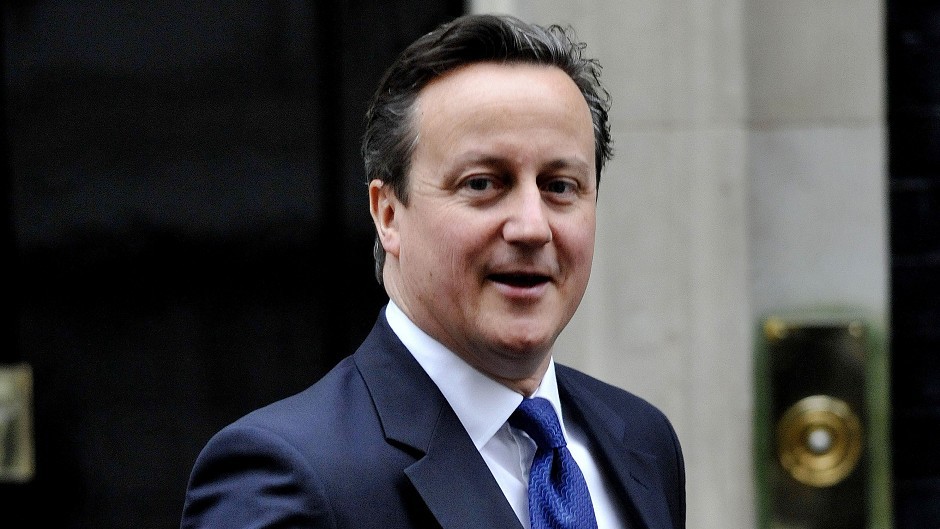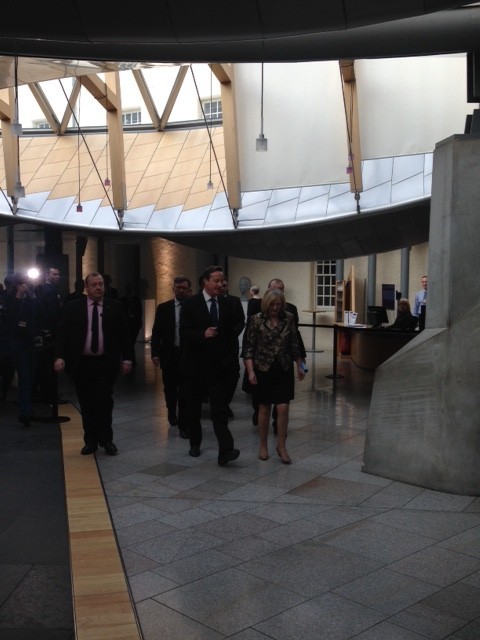Prime Minister David Cameron purposefully strides through the Scottish Parliament’s garden lobby with Presiding Officer Tricia Marwick on his way to a private meeting with First Minister Nicola Sturgeon.
The Conservative MP was expected to discuss the details of a new UK Government command paper which sets out new powers that will be devolved to the Scottish Parliament.
It is likely the talks will be frosty because earlier Ms Sturgeon accused the UK Government of “watering down” the proposals and insisting on a power of veto over decisions made at Holyrood as part of the arrangements.
The claim has been dismissed by Scottish Secretary Alistair Carmichael.
A total of 44 draft clauses, which will underpin new legislation, have been published in a report titled Scotland in the United Kingdom – an enduring settlement.
Mr Cameron has already pledged they will become law in the next parliament, regardless of who wins May’s general election.
“In September the people of Scotland came out in record numbers to decide the future of the United Kingdom,” he said.
“They voted clearly and decisively to keep our family of nations together. But a ‘no’ vote did not mean ‘no change’.
“The leaders of the other main political parties and I promised extensive new powers for the Scottish Parliament – a vow – with a clear process and timetable.
“And now, here we have it: new powers for Scotland, built to last, securing our united future.”
But Ms Sturgeon is adamant that the power of veto clause exists in the proposals and has called for it to be changed.
The first minister said aspects of the legislation represented progress but proposals in areas such as welfare, employment support and capital borrowing appeared to be a “significant watering down” of what was promised by the Smith Commission.
Ms Sturgeon said: “The legislation published today does not represent the views of the Scottish Government, but it does represent some progress.
“However, too much of what the prime minister has set out imposes restrictions on the recommended devolved powers and would hand a veto to UK ministers in key areas.
“For example, the proposals on welfare do not allow us to vary universal credit without the permission of the UK Government.
“That means – under the current proposals – we will not have the independence to take action to abolish the bedroom tax.”
It is likely that Mr Cameron and Ms Sturgeon also touched on the crisis that has engulfed the North Sea oil and gas industry in wake of the oil price crash.
Ms Sturgeon has urged the coalition at Westminster to reform the industry tax regime ahead of the budget to mitigate the impact and safeguard jobs in Aberdeen.

